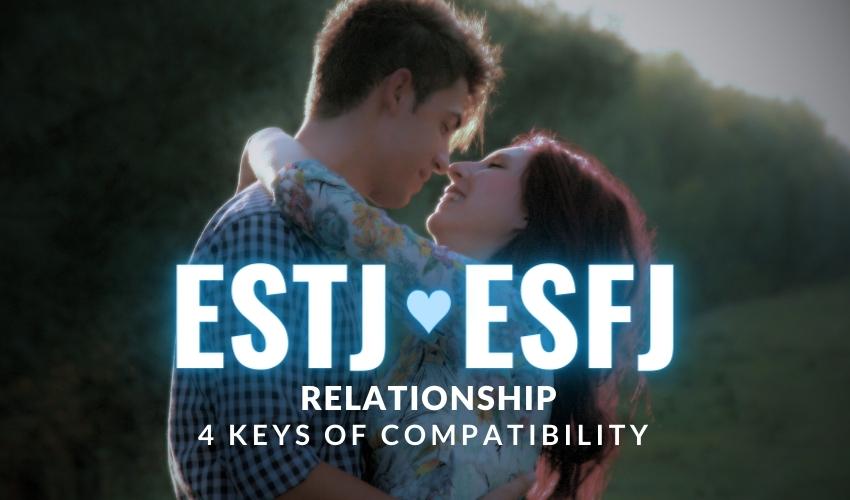It was famed psychoanalyst, Sigmund Freud who introduced the concept of defense mechanisms, a topic his daughter Anna Freud later expanded on in her book “The Ego and the Mechanisms of Defense”. Freud proposed that when the ego is confronted with information or experiences that conflicts with it’s self schema, it reflexively deploys psychological defense mechanisms to shield against the psychological distress of anxiety, depression and low self esteem that would result from acceptance.
The use of psychological defense mechanisms seems to stem from the ego’s need for psychological and emotional stability. The ego forms a conception of itself and draws boundaries for what it accepts and does not accept as part of it’s identity. In every individual, there are feelings, thoughts, and impulses existing in our psyche that are not acted on because they are either deemed as inappropriate by social standards or because they conflict with personal standards or beliefs held by the individual’s “ego ideal”. There are numerous types of defense mechanisms, many of them healthy when used maturely, such as humor, altruism and sublimation. Other forms, such as projection, denial, and “acting out” are considered unhealthy and result from a lack of self-knowledge.
In the MBTI, defense mechanisms can be a detriment to ego development and the process of individuation and integration. Unhealthy or immature use of the cognitive functions likely leads to distorted and falsified conceptions of reality to protect the ego. Here is a look at the defense mechanism you are most likely to use based on your Myers Briggs type.
INTP: Intellectualization
Devaluing the emotional aspects of a situation and sterilizing it with the antiseptic of logic and reason. Largely due to the discomfort INTPs experience when dealing with feelings both those of others as well as their own. This may be an example of the INTP’s attempt to neutralize unwanted or overwhelming emotions they experience or when they are unwilling to acknowledge the importance of Fe as relevant or even worth considering. INTP often represses their own feelings and drive them away into the unconscious because they feel incapable of expressing them effectively. Logic and rationality is safe and comfortable to them but ignoring the emotional aspects may cultivate a lack of empathy and understanding for other’s feelings.
INTJ: Rationalization
Similar to intellectualization, but this defense mechanism may be an example of an INTJ who is unwilling to accept blame and may unconsciously reframe a problematic situation in such a way that falsely justifies their actions or underestimates their role in the conflict. Harmful because a person cannot learn from their mistakes and will likely repeat them. Common among individuals who are prone to looping, individuals with poorly developed judging functions, and individuals who misuse their N function. INTJs do reflect on their own actions and will dispassionately review their inner feelings and attempt to assess and rationalize what went wrong. Their conclusions may be prone to correspondence bias where they misattribute the actions of others to flaws in their character while attributing their own misbehavior to external and situational causes beyond their control.
ENTP: Compensation
A means of balancing out one’s shortcomings in one area with excellence in another. This may be done in attempt to preserve self esteem following failure and the concomitant sense of inadequacy that is felt. When used properly, can be positive and constructive but at worst may be used as form of deflection to superficially mask or gloss over negative aspects of themselves. Also includes exaggerating one’s importance, achievements, or positive qualities in order to avoid confronting criticism for negative qualities. Harmful because a person cannot confront their weaknesses and shortcomings, thus becoming incapable of real improvement. Common in individuals who are prone to looping or grip patterns and individuals who misuse the Ti or Ni function, and individuals at around level 3 ego development.
ENTJ: Isolation
Separation of unpleasant or stressful emotion from conscious thoughts. Splitting memory and emotion in order to avoid the stress or anxiety that recalling/reliving a negative situation can produce. Individual does this so as to avoid letting negative emotions attached to certain thoughts from affecting behavior or bleeding over into other areas of life. For example, a person who stoically endures an excess of frustration at work but detaches emotionally to maintain their decorum. Harmful because failure to acknowledge emotions prevents a person from achieving closure for a negative past experience. Common in individuals who have experienced trauma as well as individuals with a poorly developed F function.
INFP: Avoidance
Avoiding anxiety-causing or stress-inducing situations, often because of perceiving oneself as incapable of confronting a problem directly. INFPs for example, may get cold feet on their wedding day and become a runaway bride. Feigning illness or some other plausible excuse will be used to relieve them of confronting the cause of their stress. Harmful because problems are left to fester, multiply, or worsen over time, lowering self-esteem to the point of helplessness or hopelessness. Common in Ps who are prone to procrastination, Fs who are prone to conflict-avoidance, Ns who do not want to deal with facts and details, Introverts who want to shut out the world, and Extraverts who want to avoid self-reflection.
INFJ: Idealization & Acting Out
Forming an inordinately high opinion of someone or something such that the qualities are perceived as being better than in actuality. This may manifest in the INFJ putting people they admire or love on a pedestal or focusing on the positive aspects of a situation while avoiding or downplaying the negative. This can set themselves up for disappointments due to unrealistic and delusional idealism and a fear of confronting painful or inconvenient truths. Also, the reputed INFJ doorslam is probably an example of acting out. Whether it is literally a slam of the door or the metaphor of shutting someone out of their lives, is typically an aggressive expression of anger that they normally would not show. Acting out is a defense mechanism that emerges due to pent up frustration that may develop when the INFJ feels oppressed or unable to express themselves effectively.
ENFP: Fantasy
Disconnecting from reality into a world of escapism, when life does not go as they’d like. In their imagination, they fashion the reality they desire and they may get lost lost in it while becoming ever more disappointed with the real world. They begin to see themselves in unrealistic terms and develop delusional expectations of themselves and others. They display wishful thinking, and thereby avoiding feelings of failure, grief, or disappointment. Harmful when fantasy is used in lieu of taking effective action to improve oneself or life conditions, thus getting stuck in a rut. Common in Ne types, Ns with a poorly developed S function, and individuals with poorly developed extraverted functions.
ENFJ: Identification
Mirroring the characteristics of others as a means of gaining social acceptance or avoid social punishment. This may be employed as social survival tool for ingratiating oneself with a person who is perceived as threatening or dangerous. An example of this could be a non-smoker who takes up cigarettes to fit in with a group of friends who smoke. A more pernicious example would be of someone who admires and follows in the footsteps of an abusive parent who’s approval they desire. Harmful when one avoids taking responsibility for perpetuating abusive, manipulative, exploitative, aggressive, or violent behavior. Common in individuals around level 2 ego development as well as Fs with a poorly developed T function.
ISTP: Passive Aggression
Difficulty or reluctance in expressing anger directly either due to social inhibition or fear of punitive repercussions. Using passive or underhanded means to express (unacknowledged) feelings of dissatisfaction towards a person/object/event, often because one cannot handle the social consequences of being assertive and truthful. May be uncooperative in performing duties and meeting the demands of others and may deliberately ignore someone when spoken to and might adopt a negative view of their situation, such as their job, and of those around them. Harmful because the behaviors pose a problem in intimate relationships, and because a person is more likely to develop a reputation as being inauthentic or untrustworthy (since passive aggression is easily detected by others). Common in individuals with low emotional intelligence due to an unhealthy F function.
ISFP: Social Comparison
When the ego has been damaged by some form of misfortune, an ISFP might compare their plight to that of someone worse off than themselves to feel better. This is called “social comparison”, a defense mechanism where an individual may artificially bolster self-esteem by comparing with someone who has it worse or someone better off with whom they share something in common. For example a person may feel insecure about their struggle with losing weight but may take solace in knowing they aren’t mama June. By contrast they may be heartened by the story of a famous person who once battled with weight loss and achieved their goals. This defense mechanism is harmful because it leads to a weak sense of self and prevents a person from developing genuine self-confidence and a realistic self-image. Common in individuals around level 2 ego development as well as individuals who misuse their Fe, Te, or Se functions.
ESFP: Acting Out
A sudden deviation from impulse control and adherence to acceptable social behavior. The ESFP in response to constriction by authority and overbearing figures may rebel and engage in reckless and defiant behavior. This may include antisocial acts and drug and alcohol abuse. This defense mechanism may also be triggered by tragic loss or emotional pain that they are unable to deal with in healthy constructive ways. This may also be done as a means of seeking attention or as a form of release for emotional tension that they are unable to express in words. Manifesting extreme and/or dysfunctional behaviors, usually because of not being able to utilize normal means to process feelings of frustration, anger, dissatisfaction, sadness, or unhappiness. Harmful because pent up emotions unconsciously drive aggressive, destructive, or violent action. Common in individuals at low levels of ego development.
ESTP: Compartmentalizing
Subconsciously creating a strict division of one’s sense of self into separate parts that reduces awareness and responsibility for one’s actions (e.g. strictly separating private life from public persona). An example might be a police officer who arrests drug offenders but later goes home to smoke some crack and bang hookers. Or a preacher who preaches the sin of adultery but has secret liaisons outside of their marriage and keeps the two value systems distinct and un-integrated while remaining unconscious of the cognitive dissonance. Harmful when believing that the different roles that one occupies can be used to justify inconsistent, immoral, or hypocritical behavior. Common among people at low levels of ego development as well as unhealthy Fe and Te dominants.
ISTJ: Repression
This defense is an unconscious or conscious attempt to forget or block out thoughts, feelings, impulses, or memories that are perceived as threatening or undesirable. Unacceptable aspects of the ego are buried away from conscious awareness only to surface in unexpected and symbolic forms. This is usually done out of pressure to adhere to social or religious standards and codes of conduct or simply as a means of survival. Common examples may be found in conservative religious persons with very strict and prudent values who abstain from forms of behavior and lifestyle considered to be vices. Repression may be attributed to shame attached to memories that leads to inhibition in some related area. Harmful because one’s sense of self becomes fragmented, and because not acknowledging facts leads to faulty beliefs or ineffectual action. Common in individuals who suffer trauma as well as individuals at low levels of ego development.
ISFJ: Reaction Formation and Undoing
Overcompensation for unwanted or unacceptable thoughts, feelings or impulses by going out their way to express the opposite of what they actually feel or want. This typically stems out of guilt such as when an ISFJ recognizes feelings they have for another person outside of their romantic relationship and instead of cheating, will make a special effort to demonstrate how much they love their partner and how not interested they are in that other person. They may secretly hate their job or boss, but for whatever reason may feel guilt, shame or fear of expressing this sentiment and consequently makes an overzealous attempt at demonstrating how much they do love their job and their boss. Out of contrition, they may also go out of their way to perform excessive acts of kindness to undo a wrong they’ve unconsciously committed against someone.
ESFJ: Projection
Attributing one’s undesirable characteristics, weaknesses, thoughts, feelings, or impulses to another person who does not factually suffer them (due to lack of insight into oneself). Harmful because it produces gross misunderstandings that destroy relationships, and because denying personal weaknesses makes self-improvement impossible. Common in individuals at low levels of ego development. ESFJs avoid conflict and are sensitive to criticism in regards to their shortcomings and insecurities (which may include that revolving around their intelligence). ESFJs, like other extraverts in general, are less likely to develop self knowledge to the same extent as the typical introvert. With Ti as their least developed function, ESFJs are less inclined to take the time to self-analyze their behavior and understand why they do what they do and develop clear principles that guide and prevent them from committing inconsistent and hypocritical behavior stemming from lack of self awareness. The qualities, thoughts, or impulses they subordinate in the name of adherence to the group standards may produce psychological distress that they cast onto other people.
ESTJ: “Black and White” or “All or Nothing” Thinking
This is a form of reductive thinking that oversimplifies an issue so as to to avoid thinking more deeply about it. It is accompanied by a refusal to consider other perspectives, alternatives, or not so obvious factors that are nonetheless relevant to understanding the situation fully and accurately. Harmful because the failure to see nuance or context leads to faulty beliefs, poor problem-solving, or a callous/dismissive attitude. Common in individuals at low levels of ego development, Fs who use their low T function defensively, Ts with a poorly developed F function.
related posts:
- Personal Growth For Each Myers Briggs Personality Type
- The Weirdest Traits In Each Myers Briggs Type
- The Worst Fears of Each Myers Briggs Type
- The Mischief Each Myers Briggs Type Gets Themselves Into
- The Mental Illness Of Each Myers Briggs Type
- The Annoying Qualities Of Each Myers Briggs Type
- ISFJ and ISTJ in love: 5 Essential Dynamics of their Relationship - February 24, 2024
- ENTP and ENTJ in love: 6 Critical Dynamics of Their Relationship. - February 18, 2024
- ESTJ and ESFJ in love: 4 Key Aspects of their Relationship. - February 12, 2024






You got the ISTP wrong, ISTPs are direct aggresive people when in stress. If you are not a legit scientist, please avoid posting generalizations.
Did you just pirate content from this site without giving them any credit? mbti-notes.tumblr.com/defense The original article has been around longer than yours and the author has no interest in astrology.
No one pirated anything. Defence mechanisms are not a new concept in psychology. I mostly used this wiki page and others as reference: https://en.wikipedia.org/wiki/Defence_mechanisms
Furthermore, the tumblr post doesn’t bother to link MBTI types with any particular defence mechanism which was the purpose of this post.
Copying other people’s work and then lying about it is not cool. What kind of person are you? :/
I already explained why you and Ral are wrong. If you still don’t understand, then I can’t help you, sorry.
Your denials are phony. Over two thirds of the words and phrases are exactly the same as that article. I know the original author and they have a distinctive writing style. They also discuss defense mechanisms for specific types on other pages of their blog. Just because you “added” a sentence here and there, doesn’t mean that you didn’t plagiarize their writing without giving them any credit. Shame on you.
I disagree with you 100%, but feel free to provide actual examples and evidence for what you claim.